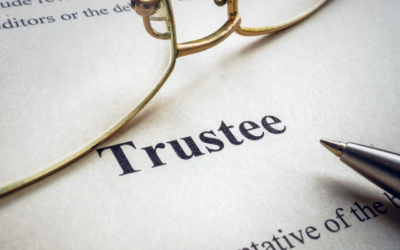Insolvency Trustee FAQ

Most asked questions regarding insolvency trustees
A Trustee is a responsible party appointed by the Superintendent of Bankruptcy to administer an insolvency process. Trustees have a wide range of duties and responsibilities, including helping debtors and creditors understand their rights under the law; assessing assets and liabilities; developing plans for paying debts through liquidation or restructuring; administering payments to creditors in accordance with approved plans; maintaining records of all activities throughout the process; and providing oversight over insolvency Ontario proceedings.
Insolvency Trustee FAQ
Trustees are required to be impartial and maintain strict confidentiality, which may lead to questions about what they can do in certain situations. Some of the most frequently asked questions regarding insolvency Trustees in Ontario include:
What is an insolvency Trustee?
An insolvency Trustee is a professional appointed by the Superintendent of Bankruptcy to administer insolvency proceedings. The Trustee’s role includes understanding their rights under the law; assessing assets and liabilities; developing plans for paying debts through liquidation or restructuring; administering payments to creditors in accordance with approved plans; maintaining records of all activities throughout the process; and providing oversight over bankruptcy proceedings.
Is an insolvency Trustee impartial?
Who can be an Insolvency Trustee?
What does an Insolvency Trustee do?

By getting expert assistance from an Insolvency Trustee, you can take back control of your finances and get on track to achieving financial freedom. Don’t let debt weigh you down.
Articles we prepared on Insolvency Trustees in Ontario
Bankruptcy vs. Consumer Proposal: The Impact on Tax Refunds
Navigating the path toward financial stability involves making informed decisions, and two significant options to consider are bankruptcy and consumer proposals. Both avenues provide a way out of debt and offer distinct asset management approaches. When it comes to...
A Guide To Choosing an Insolvency Trustee – Questions to Ask
If you have uncontrollable debt levels in your life, either a consumer proposal or bankruptcy might be the option. Nevertheless, it is vital to realize that a Licensed Insolvency Trustee (LIT) administers both. To decide which choice is right for you and walk you...
Are Licensed Insolvency Trustee and Bankruptcy Trustee the same?
The uncontrollable personal debt problems are always a trap for Canadians. In certain circumstances, bankruptcy might be the only option to recover from your debt problems and start your financial life afresh. But when proceeding with bankruptcy, you need the support...
Is there a limit to how many times a person can file for bankruptcy?
Have you ever wondered how many times an individual can file for bankruptcy? You may have already filed for bankruptcy once before and can find yourself in a situation where you face overwhelming debt again. So, can you file for bankruptcy a second time? What are the...
Rebuilding your Credit Score After Bankruptcy
Bankruptcy gives you the comfort of a pure financial slate and the worry that you will never achieve decent credit again. Although bankruptcy stays on your credit reports for up to 10 years, its impact on your score fades with time. Do not worry! It seems your credit...
Is anyone going to know that I filed for bankruptcy in Canada?
There is no single cause behind most bankruptcies in Canada. Instead, most people end up filing for bankruptcy due to a mixture of reasons, many of which are beyond the control of the bankrupt individual. However, people who file for bankruptcy are often embarrassed...
What a Licensed Insolvency Trustee Can Do for You in a Bankruptcy or Consumer Proposal
A Licensed Insolvency Trustee, or LIT, licensed by the federal government, is the only professional authorized to file consumer bankruptcies and proposals. As of 2016, Bankruptcy Trustees in Canada have been renamed Licensed Insolvency Trustees, as they deal with more...
Options for obtaining a car loan after bankruptcy
Bankruptcy relieves the borrower from their suitable debts and allows for a fresh financial start; however, while bankruptcy does not block you from borrowing again, it limits the lenders and loans you can access. Although credit bureaus remain at least six years...
Bankruptcy Discharge: Elimination of Debts
Role of Bankruptcy in Debts. The fundamental goal of claiming personal bankruptcy is to get debt relief when your debt arrives at a point where you will never pay it off on your own. When you file bankruptcy, you acquire a stay of protection from creditors. With...
The bankruptcy process – what goes on
Are you curious about what occurs during bankruptcy? Personal bankruptcy demands more from the debtor than any other debt relief option in Canada. Here are the duties required of you in bankruptcy: Surrendering your assets Income and Tax Requirements Education and...
A Consumer Proposal is your Chance
for a Fresh Start.
1-800-665-9965










